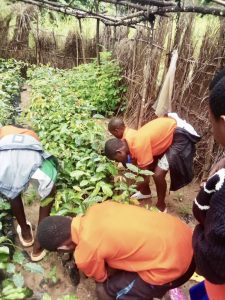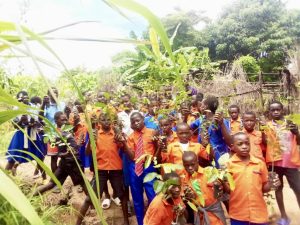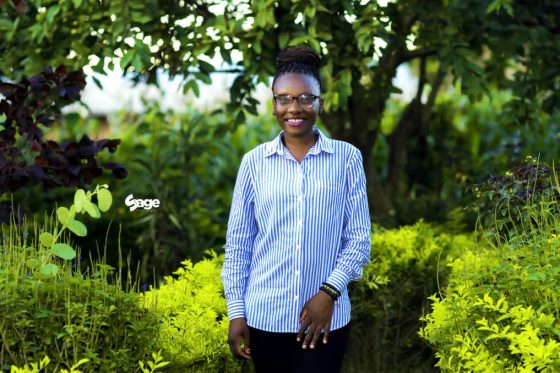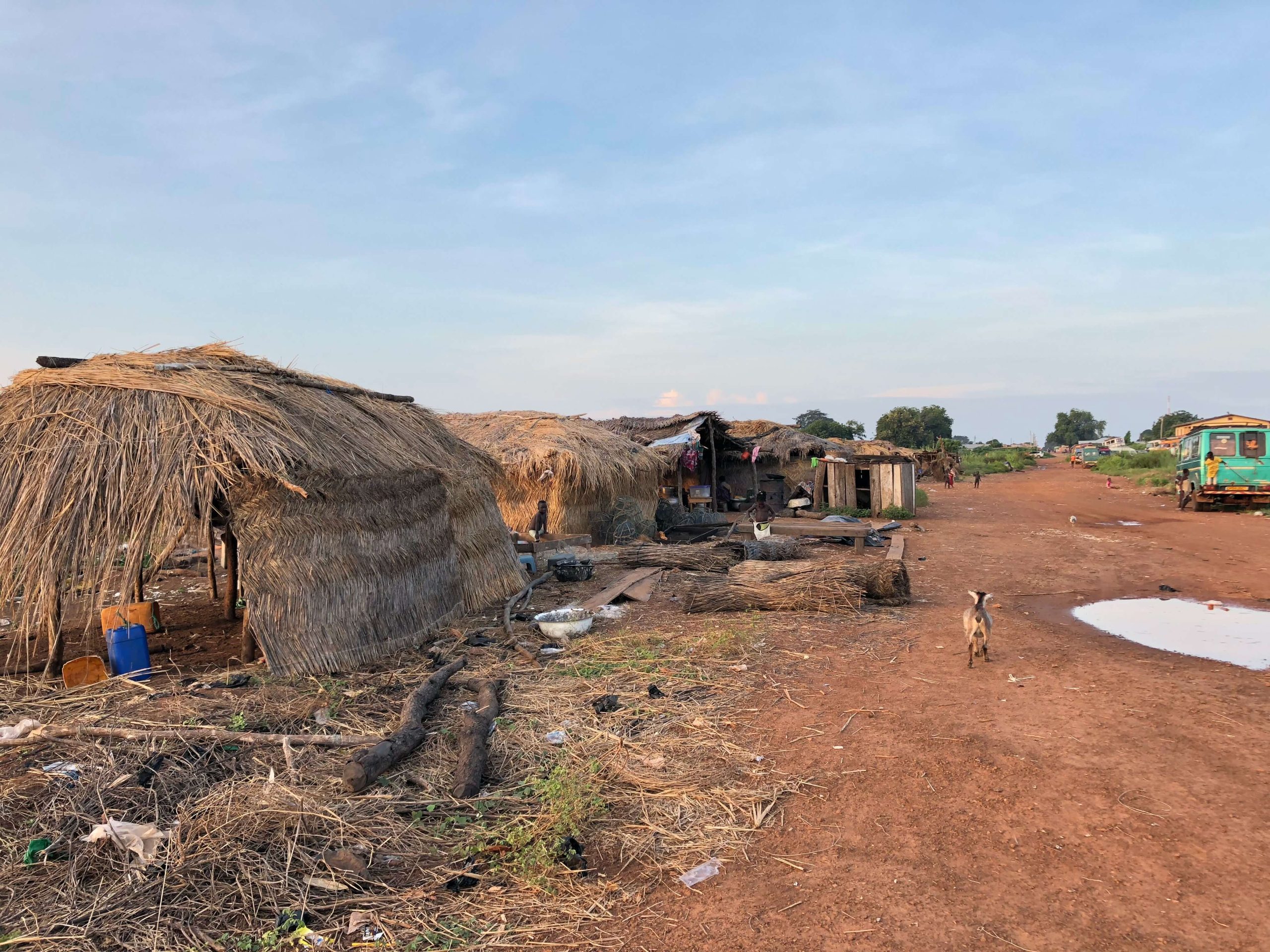My name is Tsholofelo and this is a glimpse of who I am.
 My name is Tsholofelo Mahlangu, and I live in Poortjie. I grew up in Mabopane, Pretoria, and have many fond memories from my childhood there. I have been a teacher for 20 years, specializing in social and natural sciences. Throughout my career, I have had the opportunity to work with various communities in Tshwane, my hometown. I am passionate about developing literacy projects and implementing blended learning programs, such as coding and robotics, in the communities I work with.
My name is Tsholofelo Mahlangu, and I live in Poortjie. I grew up in Mabopane, Pretoria, and have many fond memories from my childhood there. I have been a teacher for 20 years, specializing in social and natural sciences. Throughout my career, I have had the opportunity to work with various communities in Tshwane, my hometown. I am passionate about developing literacy projects and implementing blended learning programs, such as coding and robotics, in the communities I work with.
I am also a member of 02 Green in Poortjie, a role that has allowed me to connect with people, initiate positive change, and pursue my aspirations. Though I initially perceived Poortjie as more of an informal settlement compared to Pretoria, I have grown to appreciate the community and have called it home for many years.
The transformation of Poortjie through the tree sector has captivated me. Witnessing the development and introduction of greenery and beauty to the community has been remarkable. While I have a heart for teaching and nurturing young minds, I find great purpose in engaging in community-based projects. I am grateful for the opportunities I have had to be part of meaningful change through projects like those supported by 02 Green.
My passion lies in being a force for positive change within the community and making a difference in the lives of the next generation.
My social handles: Tentswalote@gmail.com
Cathrine's deep connection to Malawi is so inspiring
Meet Cathrine, a young Malawian woman who was born and raised in Zimbabwe. Despite growing up far away from her ancestral land, Cathrine was always drawn to Malawi and its beautiful landscapes. As a child, she dreamt of one day visiting her parent's homeland, and when she finally did, it was love at first sight. She was captivated by the lush greenery, cultivated fields, the rolling green hills, and the friendly, welcoming people of traditional rural African villages. 
Cathrine's connection to Malawi deepened over time, even as she faced various social and financial challenges that forced her to leave her country. She never forgot the warmth and kindness of the people she had met there, and she remained committed to helping them in any way she could. 
In 2021, Cathrine finally returned to Malawi to settle in her parents' village of Tukombo, located in the Northern region where the Tonga-speaking people reside. She was eager to reconnect with her roots and to make a positive impact on her community. She reached out to the Traditional Authority (TA) of the village's land to understand the most pressing needs in the area, and she was determined to find a way to help, even though she had no resources of her own.
Cathrine's unwavering dedication to her community inspired her to seek out like-minded friends who shared her vision of creating a better Africa for present and future generations. Together, they embarked on a journey of asking for assistance, and Cathrine was humbled by the overwhelming response from her friends, who were eager to help her build her village and work towards creating a better Africa, one village at a time. Despite having limited resources, Cathrine was able to make a significant impact on the lives of those in need in her village by providing assistance and support whenever needed. 
Cathrine's passion for the environment led her to get involved in a tree-planting project in her community of Tukombo. She collaborated with Chifundo from the DFFE, and together, they planted trees in a school and an elderly home. Cathrine had to seek permission from the Chief, Zilakoma - Mr Wellington, to run the project on their land, and he was eager to assist Cathrine in carrying out her vision to transform the landscapes while preserving the cultures and traditions that her ancestors had worked so hard to build. Her approach to the tree-planting project was unique and inspiring. She not only taught pupils how to plant trees but also explained why it was important and how to care for them. She encouraged each student to plant trees with a purpose and to name each tree they planted so they could nurture and protect it as a living treasure. Cathrine's dedication to planting trees and helping those in need is truly admirable. Her efforts have given hope for the future of our planet and the natural world. Her story is a testament to the fact that one person can make a significant difference in their community with determination and a clear vision.
Naledi’s Story On Navigating Mental Health Challenges And Finding Purpose
Sometimes, we suffer in silence. I started having mental health issues at a young age, not knowing what they were exactly, and in turn, they formed part of my personality. These mental health issues then started being apparent in my early adult years; they were a manifestation of all my childhood traumas. I learned that I had depression and anxiety when I went to varsity and did more research on what I was going through.
I found that I had all the symptoms: I had no desire to live, I had given up and struggled with being in social situations and articulating what I wanted or needed, and I was very withdrawn and always very negative-minded. Because I was quiet, my mind was a dangerous place to live in. I then attempted to commit suicide with failure. I had a support system that tried their best to help me overcome this even though they didn’t understand what I was going through.
As time went on, I then started to read self-help books because I was tired of living in constant pain. I didn’t want to survive; I wanted to live. I drove myself out of the pit of depression even though it was a very long and tough battle. Today, I am happy I get to tell my story. There’s a lot that people go through and never get assistance or even self-help. Mental health issues are a very vital part of our overall health as they distort views of an individual in so many ways. It is important to keep healthy habits for our mental health so we can not only live but thrive.
If I were to offer advice to someone going through similar mental health challenges, my primary suggestion would be to find the root cause of their distress because mental health challenges often stem from deeper, underlying issues. Identifying what specifically triggers your emotional responses and understanding the reasons behind these triggers are crucial steps. Uncovering the ‘whys’ paves the way to addressing and resolving the core issues at hand. While this approach may prove beneficial for some, it’s important to acknowledge that it might not be effective for everyone.
Moreover, it’s important to allow yourself to experience and process your emotions fully – but refrain from acting impulsively on negative thoughts, as such actions can be harmful and sometimes even worse. Allowing yourself the space to express feelings such as sadness or anger is very important for releasing stress. For those who find it difficult to express emotions openly, journaling could be a helpful option.
Above all, if you’re struggling with mental health issues, I think it is important to be kind to yourself more than anything. Practice self-love through doing things that make you feel alive and happy. This helped me to find myself again and to find purpose in little things.
Diary of a Village Girl: Creating Hope in my Community
I have always had the urge to go back home to Malawi and be part of the builders of my community and the country at large. Though born and raised in Zimbabwe by Malawian parents, my love for Malawi developed when I arrived there in 2004, still a child yet old enough to know good from the bad.
I instantly fell in love with an odd way of life in my parents' villages, both my mother's and father's sides. I fell in love with the country's innocence, the people oblivious of a life other than their way of living. Indeed, ignorance sometimes is bliss. I was raised, in my view, in an average home with running water, a bathtub, electricity, a stove, a fridge, and sleeping on a bed. I naively thought that this lifestyle was a common way of life for everyone everywhere across the world. Sleeping on a mukeka or African mat in my parent's village in Malawi was not a shock but a roller-coaster adventure for me. Fetching water was the most exhilarating experience. Carrying tons of buckets with my cousins and brothers, contrary to our small family way back in Zimbabwe, I was faced with many cousins in Malawi, an unfamiliar sight, but it was such a pleasure. We would take turns swinging the borehole wheel until we filled all the buckets.
Cooking was quite exciting, and mealtime was beyond enjoyable. We sat amidst more than 20 people near the kitchen, chit-chatting while we waited for the food to be served. We had to sit in groups, males separate from females. Just as the mothers comprised their separate group, so did the children. Each group had to be served from a communal dish according to their gender and age.
After three months of this pleasurable village experience, my father took me back to Zimbabwe. I vowed in my heart that I would return. Years later, the nudge to return to Malawi was still stirring in me. In 2014, a mature woman, I decided to relocate and work in Malawi. By then, I understood that some of the first pleasant experiences I had encountered resulted from lack and poverty. I worked in Malawi for eight months, only to be so disappointed by the new experiences of hardships. The people and the country were going through tough times due to poor governance and political misalignment. At that time, I did not find anything pleasant about my country, so I left despite my inward-burning desire to help.
Subsequently, in 2021, I mentally prepared myself for disappointment and discomfort. I went to live in Tukombo, my parent's village in Malawi's Northern region. This village comprises of Tonga-speaking people, one of the tribes that pioneered multi-party rule through Aleke Banda and are also known to be the most intelligent and educated tribe in Malawi.
I realised that my community needed help urgently. So, I contacted the Traditional Authority (TA) of the land to help and found out which areas needed immediate attention. To my shock, I was given a Bible of needs, and with no financial resources, I felt helpless and hopeless. However, although hopeless, I was confident that I could reach out to some of my trusted and valued friends with whom I had built trustful relationships over the years based on our common interests, spiritual foundation, or vision of building the Africa we want. It is an Africa with a prosperous future for the present and future generations.
I embarked on a solo journey of knocking on every one of my friend's doors for financial assistance, hoping to have a good response. Indeed, most of my friends fell head over heels without hesitation in extending their financial resources in helping to build my village while building the Africa we want, one village at a time. Yes, there have been a few exceptions whereby I had some emotional wrecking experiences. Some potential donors I approached thought that I shouldn't be "appealing" for financial assistance at this stage in my life and that I was a failure and an embarrassment to society. Therefore, I should have never reached out to them or shared the philanthropic request work I was doing. Nevertheless, through various resources and help from friends, we have managed to renovate the village court/office, helped construct a nursery block, bought chairs for the community court and distributed food parcels and clothes to the community. Once the news started reaching out to some of the people in the diaspora who shared the same passion for building or facelifting the community, the response to contribute multiplied tremendously. Many reached out to me and expressed their commitment to joining hands to improve the village.
I partnered with my fellow brothers and sisters from Tukombo, mainly based outside the country, to extend the existing clinic into a hospital. Each person would contribute as little as US$6. With all this being done with a couple of close friends, the most mind-boggling question comes to mind: How does the government of Malawi fail to deliver on the smallest of services when a small group of friends can bring change within a couple of months? Where does our government fail in service delivery? What are the priorities in the national expenditure, and what should they be?
Meanwhile, Tukombo village has diverse so-called development committees that convene countless meetings, with little or no tangible deliverables on the ground. Is it because of a lack of focus on the bigger picture regarding vision, genuine sense of duty, unity for purpose, or unity of purpose? Could this be attributed to a lack of a shared mindset, education, drive or enthusiasm to live well in Malawi?
Unfortunately, despite the continent's immense potential, there are similar heart-wrenching cases across Africa. The abovementioned drawbacks pose unsurmountable obstacles to true meaningful emancipation and economic freedom. But we must face these challenges and forge a more livable and prosperous Africa. Our experience in Tukumbo village must help us to create a hopeful community with successful tangible development goals.
Written by:
Cathrine Banda, Community Activist
Tukombo Village, Nkhatabay, Malawi
Mobile: +265 881 69 30 58
Email: cathrinetwabi@gmail.com




